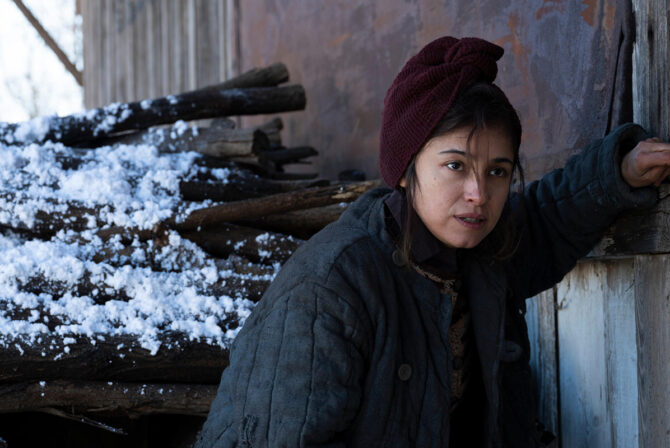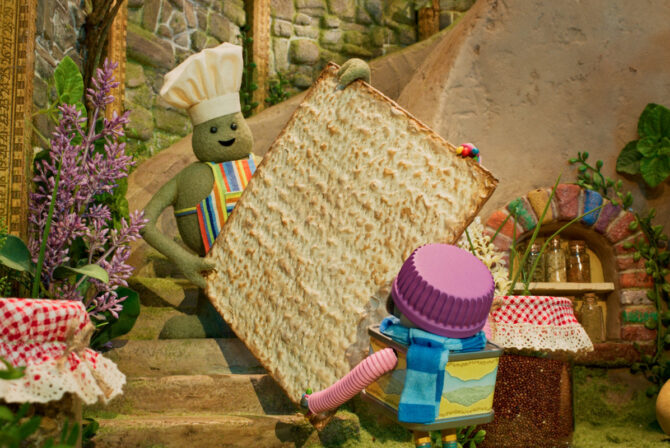I have book lists for all occasions, formed from whatever kept my attention during particular chapters of my life: college, pregnancy, parenting a newborn, as well as some less joyful times, too. When my mother was seriously ill with leukemia, I read books by other people who had cancer. The writers didn’t all survive, but their stories were beautiful, hopeful, grateful, and inspiring.
After my mother’s death, I searched sites like Kveller for keywords like grief, kaddish, and shiva. I found Modern Loss and was able to search and find articles that were most applicable to my situation (“mother” for type of loss; “cancer” as the topic).
There’s so much comfort in knowing that I’m far from alone in what I’m feeling and fearing. Once I could focus on something lengthier, I looked to books written by surviving families — and there I found a wealth of information and comfort.
Since shiva — the traditional weeklong morning period in Judaism — has the same root letters as sheva, or 7, here are 7 of books I recommend for someone dealing with the serious illness or death of a loved one.
1. Saying Kaddish by Anita Diamant

I read this book after the shiva, but I wish I had read it beforehand so I would have known what to expect for the first shiva held in my childhood home. Diamant lays out the background of the Jewish beliefs and customs around death, dying, and grieving. Devotees of Diamant’s wedding resource will appreciate her nonjudgmental explanations and alternatives to strict tradition.
2. The Bright Hour by Nina Riggs

3. When Breath Becomes Air by Paul Kalanithi

I’m sharing these two very different books together because both authors were young parents with cancer who managed to write captivating memoirs full of gratitude and love. They helped me feel grateful for the time that I had with my mom, and to cherish it even as our time spent together during her illness felt so different from what it had been before —Thanksgiving in the hospital? At least we’re together! (Bonus: If you don’t mind a bit of a spoiler, another amazing connection happened between Riggs and Kalanithi. That’s all I’ll say about that.)
4. Dead People Suck by Laurie Kilmartin

Kilmartin made me chuckle more than tear up in this Guide for Survivors of the Newly Departed, the subtitle of the book, which is a how-to weaved throughout the story of her father’s illness and death from lung cancer. I nodded my head as she described the complications of her father’s digital afterlife; while my mother slept in the ICU, I spent hours by her side mechanically unsubscribing her from the dozens (hundreds? millions?) of emails she received each day, crowding out potentially important messages. Kilmarten writes about relatable experiences, like referring to a dead parent in the past tense or how to tell a telemarketer that no, your parent cannot come to the phone, because she or he died.
5. It’s OK to Laugh by Nora McInerney Purmort

Purmort, a young mother of one, endured her father and husband dying of cancer within weeks of each other, and then a miscarriage. She described loving Catholicism for some of the same reasons I love Judaism — how whether she goes to church in Kansas or Italy, she’ll know all the words and customs. Her perspective on the individuality of grief was also meaningful for me; each person’s relationship with the deceased is unique, so being together can be comforting, but also has its limitations.
6. Saturday Night Widows by Becky Aikman

After Aikman is kicked out of a spousal bereavement group (!), she decides to start her own. Her story demonstrates how important it is to have a peer group with a shared experience. She isn’t Jewish, but her intention is in line with Jewish values: not to forget her husband or her grief, while also continuing to be in the world and among the living.
7. Dead Moms Club by Kate Spencer

This book had many funny moments, but I also had to put it down to keep my slow eye leak from becoming a full-on bawling situation, because it hit so close to home. Spencer was 27 when her mom received a grim cancer diagnosis and died within a year. She was so spot on about changing family dynamics that it made my stomach hurt — death changes the balance in a family, and people may need to update the roles they have played for many years.
Here’s a bonus recommendation for those supporting friends dealing with a tough situation, including loss or a loved one’s serious illness: There Is No Good Card For This by Kelsey Crowe and Emily McDowell. Yes, it’s better to say something than to say nothing, but this book can teach readers how to say something helpful, or even better, to remember to simply listen.








